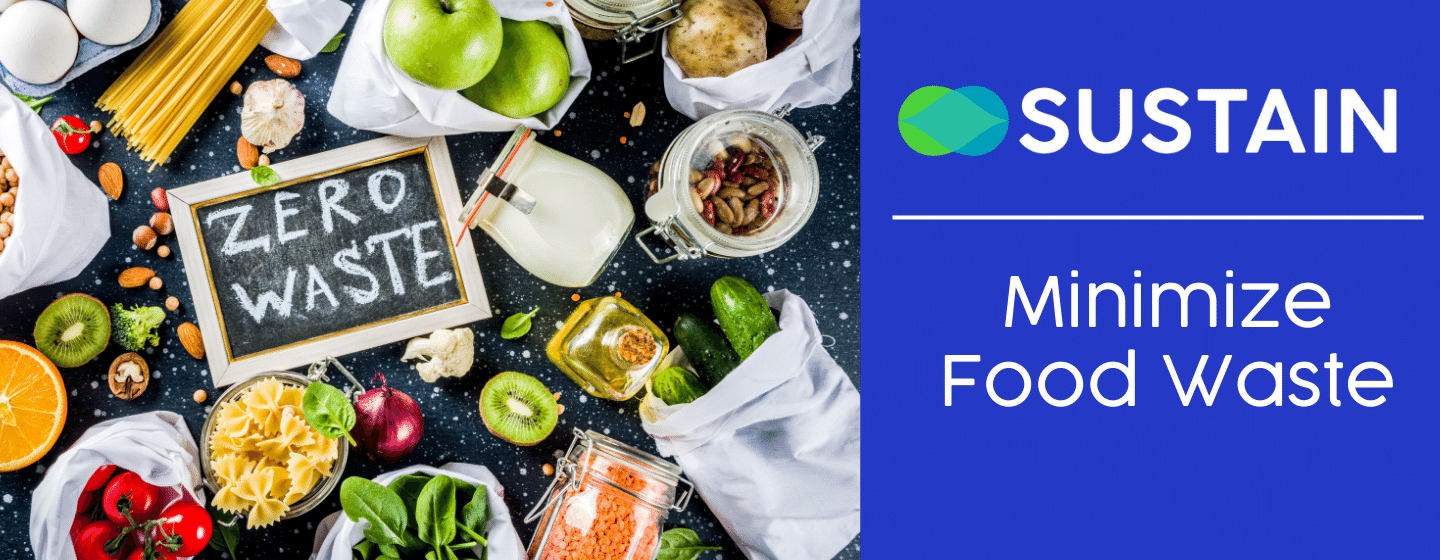Minimize Food Waste



In a world where environmental consciousness is becoming increasingly crucial, every small effort to minimize waste makes a real difference. One of the most accessible and impactful ways to make a difference is by reducing food waste. Not only does this benefit the planet, but it also enhances our well-being and stretches our budgets. So, let's embark on a journey to embrace sustainability and find joy in minimizing food waste!
1. Plan with Purpose: Make a Grocery List and Stick to It
The journey to reducing food waste begins even before setting foot in the grocery store. Take a moment to plan your meals for the week ahead. Create a detailed grocery list based on your meal plan, considering portion sizes and the number of servings needed. Before heading out, check your cupboards, refrigerator, and pantry to avoid buying duplicates of items you already have.
Sticking to your list not only saves you time and money but also prevents impulse purchases that often lead to excess food that may eventually go to waste. By planning with purpose, you're not just shopping; you're making a conscious choice to support sustainability and mindful consumption.
2. Harness the Power of Your Freezer
Your freezer is a treasure trove for extending the lifespan of perishable foods. When you find yourself with excess fruits, vegetables, or cooked meals, don't hesitate to freeze them. Properly stored frozen foods can last for months without sacrificing taste or nutritional value.
Minimize air exposure by using airtight containers or freezer bags, removing as much air as possible before sealing. Consider portioning out larger quantities into smaller servings to facilitate easy defrosting and prevent wastage. By utilizing your freezer effectively, you not only reduce food waste but also have a ready supply of meals on hand for busy days.
3. Flexibility and Creativity in the Kitchen
Cooking is an art, and improvisation is key to mastering it. Embrace the spirit of experimentation by substituting ingredients or omitting them altogether when necessary. Don't feel constrained by recipes; let your creativity guide you.
If a recipe calls for an ingredient you don't have, explore alternatives that are already in your kitchen. No limes? No problem, use vinegar. Swap fresh herbs for dried ones, or use vegetable broth instead of chicken broth. If an ingredient doesn't suit your taste or dietary preferences, feel free to leave it out entirely.
By adapting recipes to fit what you have on hand, you not only reduce the likelihood of unused ingredients going to waste but also discover new flavor combinations and culinary delights along the way.
Conclusion: Cultivating Conscious Consumption
Minimizing food waste is not just a responsibility; it's an opportunity to cultivate conscious consumption and make a positive impact on our planet. By planning thoughtfully, utilizing resources efficiently, and embracing creativity in the kitchen, we can reduce waste while savoring every moment of our culinary adventures.
Let's embark on this journey together, one mindful choice at a time, and revel in the joy of sustainable living.
Did you learn something new? Please take a moment to answer this short survey.